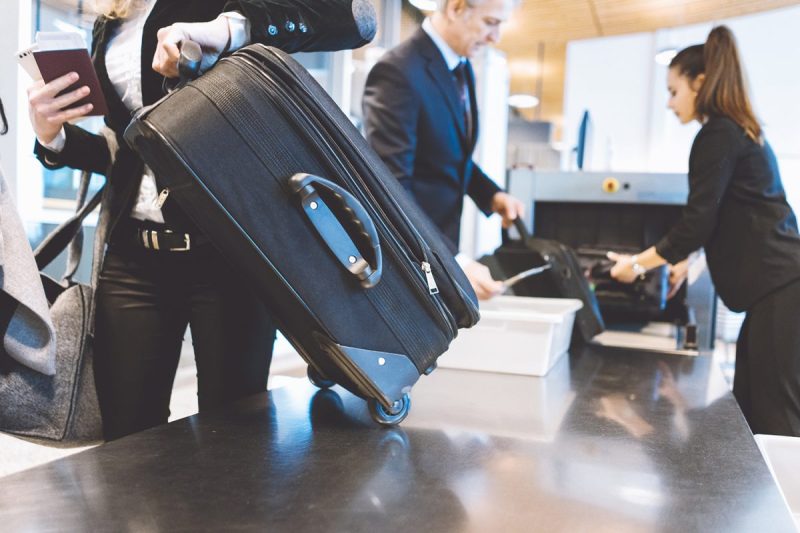
The legality of marijuana and CBD-infused products in the United States is, in technical terms, a big ol’ mess. While one could argue that the situation is getting better, it’s still very, very complicated for anyone without an advanced law degree. However, for air travelers, flying with CBD teas, tinctures, edibles, and more just got a little easier thanks to new TSA regulations.
If you weren’t too busy celebrating 4/20 this year, you might have noticed that we reported on whether or not it’s possible to fly with legally bought weed and CBD. To be clear, the federal government still considers marijuana — even medical marijuana — a Schedule 1 drug (just like LSD and heroin). It doesn’t care that you might have purchased it “legally” in a pot-friendly state, but thanks to the mind-numbing bureaucracy of federal, state, and local governments, and the failure of agencies to work together, it can be surprisingly easy to fly with legally purchased weed. We recommend reading the post above for the full details.
CBD products, on the other hand, are legal at the federal level — sort of. The 2018 Farm Bill “ensures that any cannabinoid … that is derived from hemp will be legal, if and only if that hemp is produced in a manner consistent with the Farm Bill, associated federal regulations, association state regulations, and by a licensed grower.”
While this has been true since 2018, the TSA was slow to edit its policy. Prior to Memorial Day 2019, the agency’s official stance read: “Possession of marijuana and cannabis-infused products, such as cannabidiol (CBD) oil, is illegal under federal law. TSA officers are required to report any suspected violations of law, including possession of marijuana and cannabis-infused products.” Such products were not allowed in carry-on or checked baggage under any circumstances.
However, the agency revised its policy near the end of May to reflect federal law. It currently reads: “Marijuana and certain cannabis-infused products, including some cannabidiol (CBD) oil, remain illegal under federal law except for products that contain no more than 0.3 percent THC on a dry weight basis or that are approved by the FDA.”
Let’s look at that last line first. Only one such pharmaceutical, Epidiolex, is currently approved by the FDA. If you happen to be a child suffering from epilepsy and have a prescription for that drug, you can stop reading now. If not, however, there are two significant stipulations to be aware of before jetting off with a suitcase full of CBD goodies. Those goodies must have been produced in accordance with the Farm Bill, and they must contain 0.3 percent or less THC.
That sounds easy enough since most reputable CBD product manufacturers stamp their packaging with clear ingredient and origin labels, but that doesn’t mean those figures are accurate and, more importantly, air travelers have no way of proving them either way. Some manufacturers are flat-out misrepresenting their products as “legal” while others don’t perform sufficient testing to know one way or the other. If airport security doesn’t want to take a package’s numbers on faith, they’re within their right to confiscate your wares, deny you boarding, hand you over to airport police, or some combination of all three.
In short, if you must travel with CBD products, be sure that the THC content is 0.3% or less and that figure is clearly indicated on the packaging. And be aware know that the TSA may still confiscate those products if they’re at all suspicious of the validity of the packaging.


